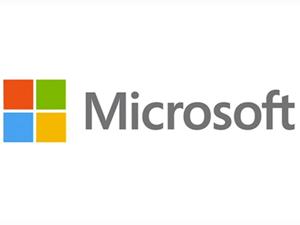Manila, Philippines December 3, 2015– Microsoft’s EMS or the cloud-based Enterprise Mobility Suite is touted as one that can help realize an APEC-wide Free Trade Area of the Asia-Pacific (FTAAP), while addressing issues that challenge its fulfilment.
The APEC fact sheet describes the FTAAP as an integrated area where goods, services and people transmit smoothly across borders. Elements that characterize the FTAAP include faster customs procedures at the borders, and adopting a common set of regulations and standards across the region for more efficient trade.
EMS, a bundled set of complementary management components, supports these goals as it enables secure “enterprise mobility,” or the ability for a business to operate on the go and outside of company premises with technology that is secure, efficient, and quick.
In the recently concluded APEC Economic Leaders’ Week in Manila this November, leaders from the 21 member economies affirmed that such solutions are critical at a juncture where the APEC community must move forward within a seamless and simplified system that allows commerce to freely flow across borders, even in the face of current threats like data breaches and terrorism.
Business facilitation within APEC should eliminate operational inefficiencies and loopholes while addressing things like intellectual property protection, government procurement and rules of origin, enhancing Internet and digital network development, data privacy protection and cyber security.
These are issues that Herns Hermida, Microsoft Philippines Cloud and Enterprise Business Group Lead, believes the EMS can address. “EMS provides enterprise IT solutions for hybrid identity management, mobile device management and information protection,” Hermida says.
In fact, in the “New World of Work Index,” a study conducted by Microsoft with global consultancy firm Organisation Solutions, it was found that, with the current business climate requiring collaboration, mobility and increased productivity outside the office, trends like BYOD (Bring Your Own Device) have become the norm. Team members use a wide array of devices of different platforms mixing personal and work tasks in the same device, opening up the business to network intrusions, hampered productivity and unsecured transactions.
EMS, which functions best in Windows 10 but also works across in any new or old mobile device across all platforms including IOS and Android, was built to “secure information with a comprehensive set of access control and data protection capabilities,” says Hermida. “EMS provides enterprise IT solutions for hybrid identity management, mobile device management and information protection,” Hermida adds.
Hermida gives an example of how EMS works in practical terms: “For example, you can restrict employees to log in only with their own Microsoft accounts, and not any other third party accounts, to download apps from the Windows Store. There’s also an option to prevent the user from using just any app but rather allow only a few specific ones, and those can be placed on the start screen. Content for certain key words can also be filtered out so that no credit card data or the like can be sent.”
One interesting function within the EMS works to guard the behavior of the logins and identify whether something isn’t quite right with a user’s ID. “If you log in one minute in Manila and not three minutes later in Singapore, it’s very likely that something fishy is going on and it is possible to discover the activity and nip it in the bud immediately.”
With this whole range of service and functionality, EMS will cost businesses far less than using a whole range of stand-alone solutions, Hermida points out.
“EMS only costs 8.75 USD per user a month, as compared to an estimated 18 USD cost per user per month when using other vendors,” Hermida says.
Cost efficiency is certainly one hurdle that must be overcome if the APEC community should adopt a seamless ecosystem within the short term. –end-
###
About Microsoft
Microsoft (Nasdaq “MSFT” @microsoft) is the leading platform and productivity company for the mobile-first, cloud-first world, and its mission is to empower every person and every organization on the planet to achieve more.
More Microsoft Philippines Events Here.
Editorial contacts:
Microsoft Philippines Dominguez Marketing Communications, Inc.
Pia De Jesus Mel Dominguez Sheila Rada
M: 0917 831 1032 T: 897 7088 M: 0918 902 0722
E: vdejesus@microsoft.com E: mel.dominguez@dominguez.com.ph E: sheila.rada@dominguez.com.ph


